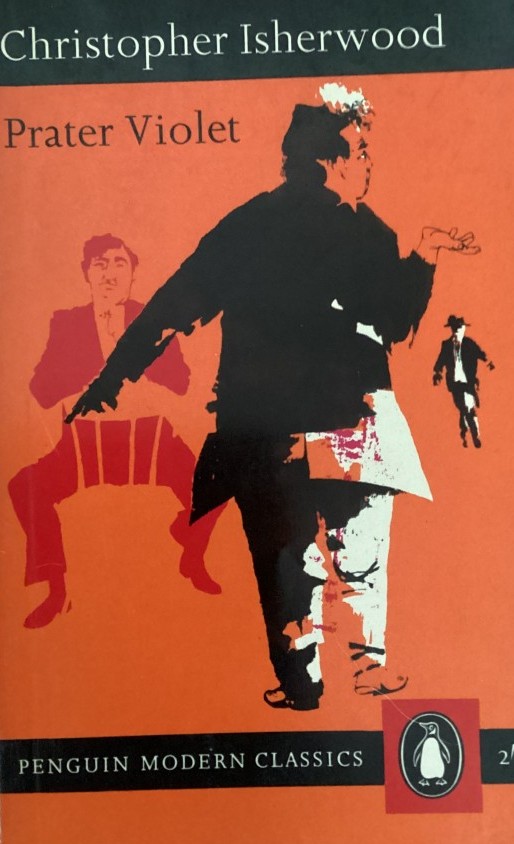Inspiring Older Readers
 posted on 02 Sep 2024
posted on 02 Sep 2024
Prater Violet by Christopher Isherwood
Published in 1946, this was Isherwood’s first novel following the more widely known and admired, Goodbye to Berlin. Actually, calling it a ‘novel’ raises a whole number of issues about just what this is – yes, it’s fiction – just about – but it’s also heavily reliant on barely concealed autobiography and Isherwood himself is firmly at the heart of it. It’s also the portrait of a man, a film director of some talent, who finds himself and his art fundamentally challenged by the brutal politics of the ‘real world’.
The book starts when the young Isherwood, who is trying to make his way as a writer, is approached by a film studio to be an in-house writer on the proposed movie to be called 'Prater Violet'. He soon discovers that he’s been headhunted to be the companion of the remarkable Viennese director, Friedrich Bergmann – as much for his German language skills as for his writing. Bergmann is a huge personality who then bestrides the rest of the book – teaching Isherwood not just how to come to terms with the shallow, brittle and demanding film industry but how a man comes to terms with potential tragedy.
This film is being made when the world is on the brink of war – Bergmann’s compatriots and family are having to come to terms with the march of Hitler’s expansionist ambitions at the same time as he’s in the less than sympathetic or understanding fantasy world of movie-making in the UK. The absurd politics of the movie world are increasingly juxtaposed with the horrifying politics of Europe under the Nazis as Bergmann (understandably) begins to disintegrate under the pressure of the threats to family and friends at home.
That Bergmann is professional enough to eventually hold it all together and finish the movie despite all the manoeuvring, duplicity and back-biting is a testament to the man and, by extension, a condemnation of the mores of movieland.
Only 150 pages long, I think this is one of Isherwood’s sharper novels – a piece of satire plainly told and hitting the spot without over-labouring the point. Written in a clear, plain prose that’s made authentic by Isherwood being present in the story and able to steer us through it with his eyes and his perceptions without feeling the author has artificially stepped-in or is being in any way intrusive.
The feeling of peril that faces Europe is there is the background all the time and the flimflam of the movie-world politics serves to sharpen our sense of dread and our sympathy for the otherwise semi-cartoonish Bergmann. By the end our admiration for the film director is as real as Isherwood’s.
This is a book that can be read in a couple of sittings – which is the best way to tackle this I think – and you’ll find paperback copies easily enough for well under £10. This might just be the perfect book for a longer train journey.
Terry Potter
September 2024